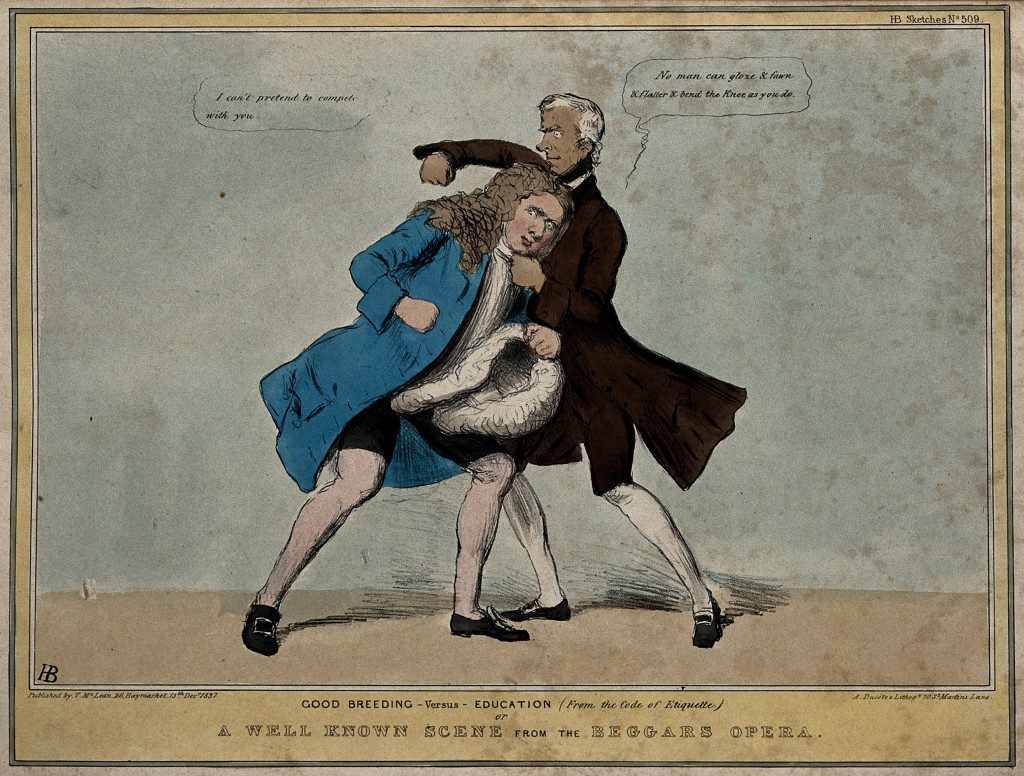
Did Arthur Brooks plan for his book Love Your Enemies to be released a few short weeks before the latest Two Minutes’ Hate? Unlikely. But it’s certainly fortuitous, though it was a bit discombobulating to be reading the final chapters of Brooks’ book calling for reconciliation with political opponents while idly checking my facebook feed and learning that there’s a new hatestorm brewing against Nathan Pyle, the author of a emergingly-popular internet comic strip in which aliens talk about everyday actions, because of a newly-discovered tweet from 2017, to wit:
https://twitter.com/nathanwpyle/status/825066260153167873
(yes, I was, in fact reading at a fast clip; the book is due back at the library).
Some of the reactions from twitter and facebook were mild announcements that the account was being unfollowed. Others called him an “anti-choice activist” and proclaimed that he wanted to enslave women:
I am deeply disappointed to learn that Nathan Pyle is an ardent anti-choice activist. I will not be sharing any more of his comics.
— Erica Friedman is on Bluesky: okazu.bsky.social (@OkazuYuri) April 8, 2019
Just found out Nathan Pyle is a #forcedbirther which is a shame because I was really enjoying #StrangePlanet . Oh well, glad I found out before ordering any merch. Unsubscribe. https://t.co/BsbcvxcjUZ
— Cassie (@CaSSiSiA) April 8, 2019
https://twitter.com/timeisascam/status/1115325202441723904
(I’m told that people are being even more, er, expressive in their facebook comments.)
How do you digest that, in light of Brooks’ call for a little more kumbaya?
To back up a bit:
The essence of Brooks’ book is that we should all just take a step back, and focus on calming the heck down. Even if we feel like those on the other side of the political divide hold us in contempt, we need to practice, as the title says, loving our enemies, rather than mirroring this same contempt back at them.
(His background, by the way, is that of a think-tanker, now president at AEI so I am predisposed to say nice things about him anyway, and prior to that an academic, and before that a French hornist at a symphony orchestra. And he seems to be an all-around Smart Person.)
There are a couple key observations to his book:
First, a chapter called “How Can I Love My Enemies if They Are Immoral?” calls on readers to recognize that their political opponents do indeed have moral principles, but just express them differently. He cites a scholar who distills morality into five “foundations”: fairness, care for others, respect for authority, loyalty to one’s group, and purity or sanctity, and suggests that while progressive reject the last three, we share the first two, but understand them differently. Now, I’m skeptical of the claim that progressives reject “loyalty to one’s group” as a virtue; seems more that they disagree on who “the group” consists of. And they are not interested in sexual purity but demand other sorts of purity and I’m not going to venture into assessing whether there’s some underlying similarity.
He also shares the story of Robert George and Cornel West, two professors at Princeton who are polar opposites politically but very close on a personal basis. He provides an anecdote of a researcher in the 1930s who found that a Chinese couple traveling the US had no difficulty being accepted at hotels and restaurants the management of which later said, via an anonymous survey that they would not accept Chinese customers — that is, because it is personal contact and personal relationships which make a difference, not exchanges in the ether of the internet, or statistical data. And he writes that, when he gives talks — which he attempts to do frequently, even to potentially hostile audiences — he does so with an attitude of outreach rather than confrontation. Oh, and he emphasizes that “winning arguments” is really nothing of the sort — that is, if you “own” someone or “school” someone with your superior intellect, you haven’t actually persuaded someone if the end result is that they feel you’ve treated them with contempt.
Finally, he gives “five rules” in his conclusion, including a call to “escape the bubble” by exposing yourself to other perspectives, to actively try to “treat others with love and respect, even when it’s difficult” and to “disagree better.”
So what does this have to do with Nathan Pyle?
It is difficult to process this sort of name-calling, and it’s circular. These people said really nasty things about me. Maybe not directly, but indirectly, they piled on hate for someone who shares my beliefs, in the same way as the Covington High School boys were deemed guilty because of their presence at a March for Life. How can I work with people who hate me and are mean to me? And in that respect, isn’t Brooks’ book just preaching to the choir? The haters aren’t interested in changing their ways — they are perfectly happy riling people up on the internet.
But at the same time, on the bright side, “Nathan Pyle” isn’t trending. There are tweets pushing back against this reaction (though some of them say, unfortunately, “give him the benefit of the doubt; maybe he’s reformed since then”). And with respect to the haters, the boycotters, the “cancel culture,” I am not going to change anyone’s mind. But Brooks’ call is something more long-term. It’s a serenity-prayer sort of thing, I suppose: if you’re not going to change minds by yelling back, what can you do? Maybe in your own small corner of the world, in the way you interact with people on a day-to-day basis online and in person, you can decrease the chances that someone will react that way in the first place.
Image: V0050236 A fist-fight between Lord Brougham and Lord Melbourne as Pea
Credit: Wellcome Library, London. Wellcome Images
[email protected]
http://wellcomeimages.org
A fist-fight between Lord Brougham and Lord Melbourne as Peachum and Lockit. Coloured lithograph by H.B. (John Doyle), 1837.
1837 By: John DoylePublished: 22 October 1836
Copyrighted work available under Creative Commons Attribution only licence CC BY 4.0 http://creativecommons.org/licenses/by/4.0/









